A Very Short, Fairly Interesting and Reasonably Cheap Book About Studying Criminology
A Very Short, Fairly Interesting and Reasonably Cheap Book About Studying Criminology
Ronnie Lippens
Ronnie Lippens 2009
First published 2009
Apart from any fair dealing for the purposes of research or private study, or criticism or review, as permitted under the Copyright, Designs and Patents Act, 1988, this publication may be reproduced, stored or transmitted in any form, or by any means, only with the prior permission in writing of the publishers, or in the case of reprographic reproduction, in accordance with the terms of licences issued by the Copyright Licensing Agency. Enquiries concerning reproduction outside those terms should be sent to the publishers.
SAGE Publications Ltd
1 Olivers Yard
55 City Road
London EC1Y 1SP
SAGE Publications Inc.
2455 Teller Road
Thousand Oaks, California 91320
SAGE Publications India Pvt Ltd
B 1/I 1 Mohan Cooperative Industrial Area
Mathura Road, New Delhi 110 044
India
SAGE Publications Asia-Pacific Pte Ltd
33 Pekin Street #02-01
Far East Square
Singapore 048763
Library of Congress Control Number: 2008934311
British Library Cataloguing in Publication data
A catalogue record for this book is available from the British Library
ISBN 978-1-84860-141-3
ISBN 978-1-84860-140-6
Typeset by C&M Digitals (P) Ltd, Chennai, India
Printed in Great Britain by Athenaeum Press, Gateshead
Printed on paper from sustainable resources
Dedication
This book is dedicated to
Hans, Greta, Erin, Yoran, Lunar, and Arden Hofman,
and to
Peter, Mirse, and Jonas Colle
Contents
(on Human Life)
(on Human Existence)
(on the Mastery of Others)
(on the Mastery of Self)
(on the Absurd)
Preface
This book, in its own little way, aims to address the current dearth of philosophical introductions to the study of criminology. It is written for students who have just embarked upon the study of criminology or related fields and disciplines (e.g. law and socio-legal studies, sociology of deviance, criminal justice and justice studies) and who want to familiarize themselves with a number of basic philosophical ideas and insights in order to sharpen and develop their critical abilities. Students who have already progressed into their academic curriculum might also benefit from reading this book. It is my silently cherished hope that even the more advanced criminology student will be able to find, in this little book, reasons to review, adjust and perhaps modify their opinion or position on the issues of crime and crime control.
An attempt was made to make this book as accessible as possible. The number of notes and references has been limited to a necessary minimum, while a Further Reading signpost placed at the end of the book should offer the more inquisitive student an opportunity to expand their philosophical and criminological horizon. Although this is a slightly philosophy-oriented book, great care was taken to avoid as much jargon as possible. Philosophical concepts and ideas are introduced carefully and gradually.
Students without any prior knowledge of philosophy, or indeed criminology for that matter, should be able to grasp the argument in this book without any trouble. However, readers are advised to read all chapters in sequence. The basic argument should then gradually fall in place. Allow me to phrase this differently: readers could do worse than read the more theoretical and slightly abstract chapters (i.e. ).
Over the years Ive had quite a few interesting discussions with fellow criminologists and legal scholars on the topic of undergraduate education in criminology and socio-legal studies. Colleagues at Keele University and elsewhere have always been very keen to discuss such issues with me. Many thanks go to all of them. I would very much like to mention Anette Ballinger, Lieve Gies and Tony Jefferson in particular here. I really enjoyed the many conversations we had on a whole range of teaching related topics. Last but certainly not least I wish to thank undergraduate criminology students at Keele University, especially Rachel Burns, Matthew Condick-Brough, Randhir Jutley and Kade Morton, for keeping me on my toes during tutorial seminars.
Many thanks to Caroline Porter and Sarah-Jayne Boyd at Sage.
Ronnie Lippens
Professor of Criminology
Keele University
June 2008
1
A Slightly Philosophical Introduction to the Study of Criminology?

about the book
This book is not meant to be read as a criminology textbook proper. In fact, it is not even an introduction to criminology. What it does provide is a slightly philosophical introduction to the study of criminology. The reader wont find any systematic overview or analysis of criminological perspectives and theories in this book. Nor does the book include extensive applications of such perspectives and theories to a number of issues and topics that are often considered to be part of the field of criminology. These include, inter alia, the causes of criminality and crime; the form, spread and distribution of crime; the workings and functioning of the criminal justice system; life in prison; the impact and effects of particular forms of punishment on convicted offenders and on society more broadly; the ongoing search for more effective, more efficient and more ethically justifiable or acceptable alternatives to the criminal justice system as we currently know it, and so on. To be sure, some of these issues and topics, and some of the more theoretical perspectives and models with which criminologists tend to study and analyse them, shall be touched upon in this short book, e.g. in order to illustrate a basic philosophical idea or tenet. However, since this is no criminology textbook proper, the reader should not expect a systematic overview. Readers who are interested in a more systematic overview of, and introduction to criminological perspectives, theories, issues and problems could do worse than consult the Further Reading section placed at the end of this book, where a few very good introductory texts are signposted.
As a philosophical introduction to the study of criminology, the book at hand aims to provide those who intend to study criminology with a number of fairly basic, indeed philosophical ideas and insights which may help them to acquire the critical tools necessary for them to orientate themselves in the vast criminological landscape. But that of course does not absolve us from having to trace the broad outlines of this criminological landscape first, that is, before we embark upon our more philosophical endeavour proper. What is criminology? What is criminology about? What kind of questions do criminologists ask themselves? Let us first say a few words on this.

about criminology
You could do the test yourself. Asked any of the aforementioned questions many, if not most will be inclined to respond by defining criminology as the scientific search for answers to the question, Why do people commit crime? Some may even state that criminology is all about finding the causes of crime. In a way such definitions are not entirely incorrect. Historically, criminologists have, since the inception of their field of study during the latter half of the nineteenth century (the very word criminology surfaced during the 1870s), preoccupied themselves with the

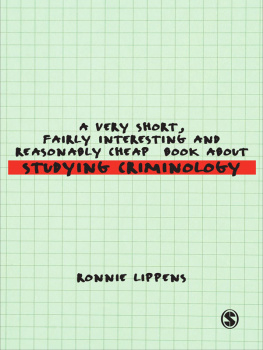
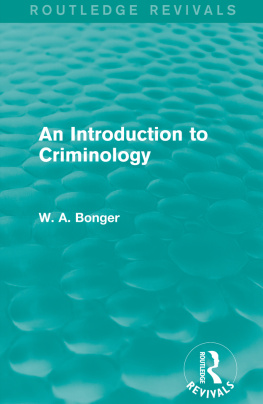


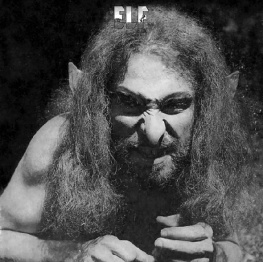
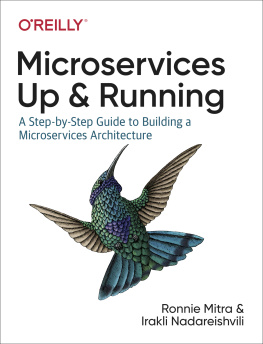

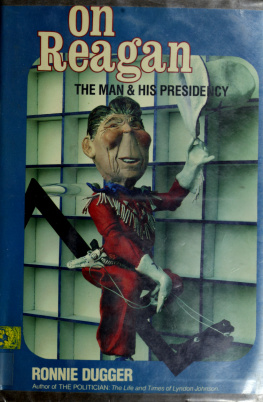
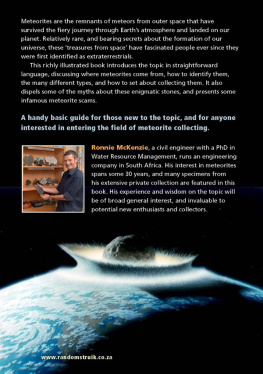


 about the book
about the book